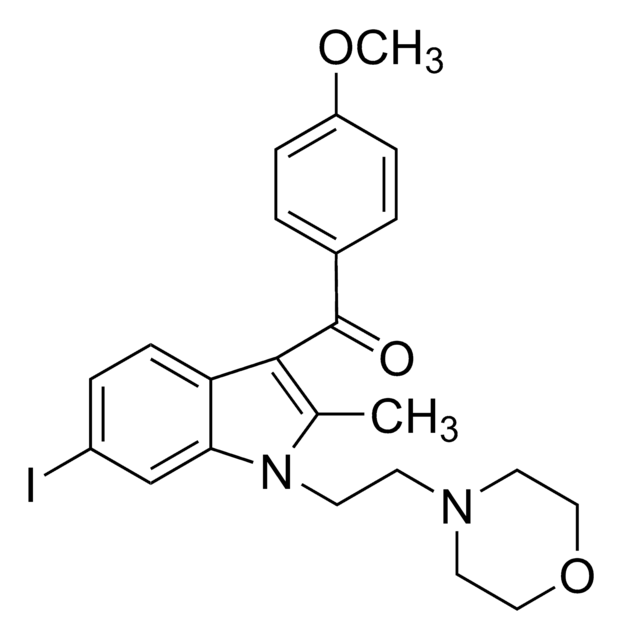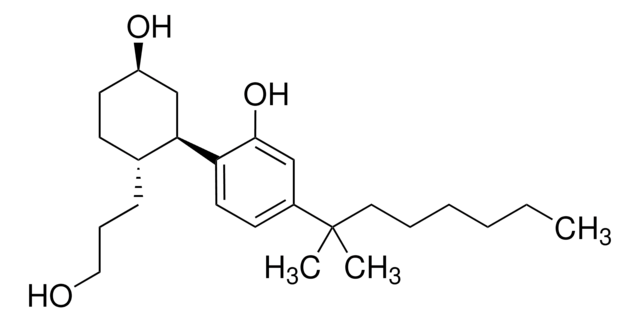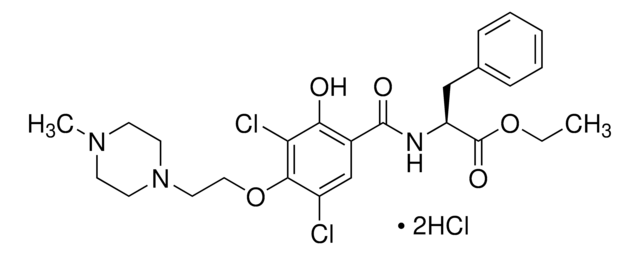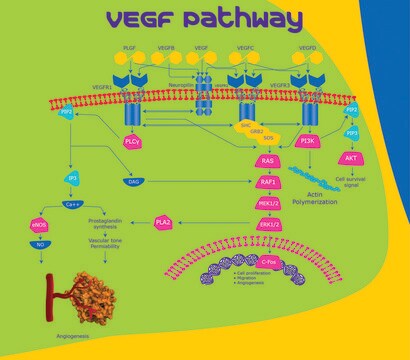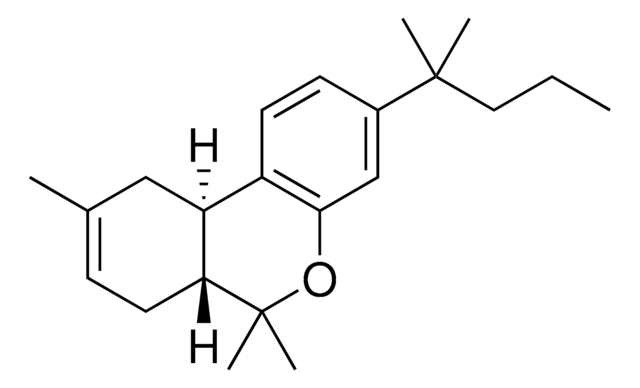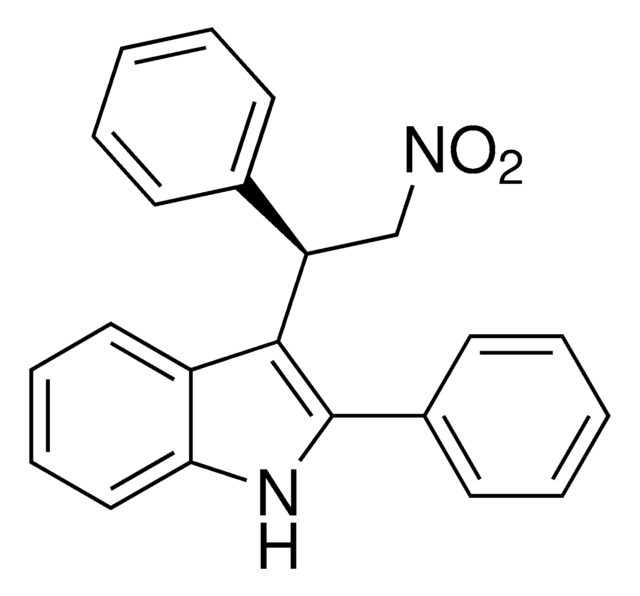SML2710
ZCZ011
≥98% (HPLC)
Synonim(y):
6-Methyl-3-(2-nitro-1-(thiophen-2-yl)ethyl)-2-phenyl-1H-indole, 6-Methyl-3-[2-nitro-1-(2-thienyl)ethyl]-2-phenyl-1H-indole, ZCZ 011, ZCZ-011
Zaloguj sięWyświetlanie cen organizacyjnych i kontraktowych
About This Item
Wzór empiryczny (zapis Hilla):
C21H18N2O2S
Numer CAS:
Masa cząsteczkowa:
362.44
Numer MDL:
Kod UNSPSC:
12352200
NACRES:
NA.77
Polecane produkty
Poziom jakości
Próba
≥98% (HPLC)
Postać
powder
kolor
white to beige
rozpuszczalność
DMSO: 2 mg/mL, clear
temp. przechowywania
2-8°C
Działania biochem./fizjol.
ZCZ011 is a brain-penetrant, cannabinoid receptor CB1-selective positive allosteric modulator (PAM) that enhances orthosteric agonist CP55,940, while reduces orthosteric inverse agonist SR141716A, CB1 binding. ZCZ011 potentiates AEA-stimulated GTPγS binding (Emax = 46.5% without vs. 115.2% with 100 nM ZCZ011; mouse brain membranes) and cellular signaling (β-arrestin Emax = 100% without vs.157% with 100 nM ZCZ011, pERK pIC50 = 6.5 without vs. 8.3 with 10 nM ZCZ011; hCB1 cells). ZCZ011 exhibits antinociceptive efficay in murine chronic constriction injury (CCI) model of neuropathic pain & carrageenan model of inflammatory pain (40 mg/kg i.p.) without cannabimimetic side-effects.
This page may contain text that has been machine translated.
Kod klasy składowania
11 - Combustible Solids
Klasa zagrożenia wodnego (WGK)
WGK 3
Temperatura zapłonu (°F)
Not applicable
Temperatura zapłonu (°C)
Not applicable
Certyfikaty analizy (CoA)
Poszukaj Certyfikaty analizy (CoA), wpisując numer partii/serii produktów. Numery serii i partii można znaleźć na etykiecie produktu po słowach „seria” lub „partia”.
Masz już ten produkt?
Dokumenty związane z niedawno zakupionymi produktami zostały zamieszczone w Bibliotece dokumentów.
Enantiomer-specific positive allosteric modulation of CB1 signaling in autaptic hippocampal neurons.
Jose Mitjavila et al.
Pharmacological research, 129, 475-481 (2017-11-22)
The cannabinoid signaling system is found throughout the CNS and its involvement in several pathological processes makes it an attractive therapeutic target. Because orthosteric CB1 cannabinoid receptor ligands have undesirable adverse effects there has been great interest in the development
Noureldin Saleh et al.
Angewandte Chemie (International ed. in English), 57(10), 2580-2585 (2018-01-10)
The cannabinoid CB1 receptor (CB1R) is an abundant metabotropic G-protein-coupled receptor that has been difficult to address therapeutically because of CNS side effects exerted by orthosteric drug candidates. Recent efforts have focused on developing allosteric modulators that target CB1R. Compounds
Bogna M Ignatowska-Jankowska et al.
Neuropsychopharmacology : official publication of the American College of Neuropsychopharmacology, 40(13), 2948-2959 (2015-06-09)
The CB1 receptor represents a promising target for the treatment of several disorders including pain-related disease states. However, therapeutic applications of Δ(9)-tetrahydrocannabinol and other CB1 orthosteric receptor agonists remain limited because of psychoactive side effects. Positive allosteric modulators (PAMs) offer
Nasz zespół naukowców ma doświadczenie we wszystkich obszarach badań, w tym w naukach przyrodniczych, materiałoznawstwie, syntezie chemicznej, chromatografii, analityce i wielu innych dziedzinach.
Skontaktuj się z zespołem ds. pomocy technicznej